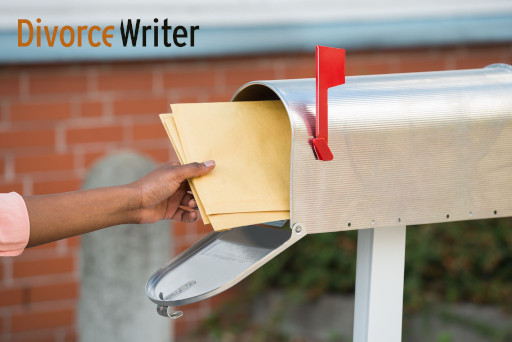Filing for Divorce by Mail

Filing legal documents by mail, which is an option in all states, is often overlooked by divorce filers.
Tips for Filing by Mail
1. Include Enough Copies of Each Document
When you file for divorce by mail, you will need to send the original of each document for the court's file plus two copies (one for each spouse). In a few states, you may need to send additional copies of certain pleadings like the divorce petition when minor children are involved. With other documents like civil coversheets, vital statistics forms, and forms containing certain confidential information, you only need to send the original without any copies. When organizing your documents for mailing, keep the original of each document with its copies. If you have conflicting information about the number of copies required, send the higher number.
2. Send a Cover Letter
The cover letter tells the court clerk everything you have inside the envelope including the name of each document being filed, the number of copies included, and the amount of the filing fee enclosed. The cover letter also asks the clerk to file the documents with the judge and return file-stamped copies to you. In a few states, all documents are filed at once, but in most states filing divorce paperwork is a two or three-step process. Include a filing cover letter every time you mail in paperwork to be filed. Your documents should be organized in the same order as they are listed on the filing cover letter, and the cover letter should be on top so it is the first thing the court clerk sees. Although the number of documents being filed varies by state, in most states a 9 x 12 envelope will be the right size.
3. Send the Correct Filing Fee in the Right Form
Seventeen states plus D.C. have the same filing fee statewide: AK ($150), CA ($435, $450 Riverside and San Francisco counties), CO ($230), CT ($360 plus $50 marshal fee), DC ($120), ID ($207), IA ($185), ME ($120), MD ($165), MA ($200), NE ($158), NJ ($300), NY ($210), ND ($80), RI ($160), SC ($150), SD ($95), and WA ($314). The filing fees in the 32 other states vary from county to county. More information on filing fees by state is available here. All courthouses accept cashier’s checks and money orders. Almost all accept personal checks.
4. Include an SASE for the Return of File-Stamped Copies
The court clerk will keep the original paperwork and then return the remaining copies to you. Include a self-addressed stamped envelope with adequate postage to accommodate the return of both sets of copies to you to make it easier for the court clerk. Once you receive your file-stamped copies, serve the other copy on your spouse in the manner required in your state. In most states, when the other sposue signs a waiver or acceptance of service, it is sufficient to just mail or hand them a copy.
Can I e-file instead?
E-filing has advantages over filing by mail, namely e-filing is faster and does not require multiple copies of documents. That being said, while the federal court system has had mandatory e-filing for 15 years, the state courts continue to lag behind. You can use e-filing to get a divorce (start to finish) in about half of the states. More states may offer e-filing, but not in divorce cases, or may offer e-filing in divorce cases, but only once the case has been filed with the court clerk's office. Learn more about e-filing your divorce papers here.
